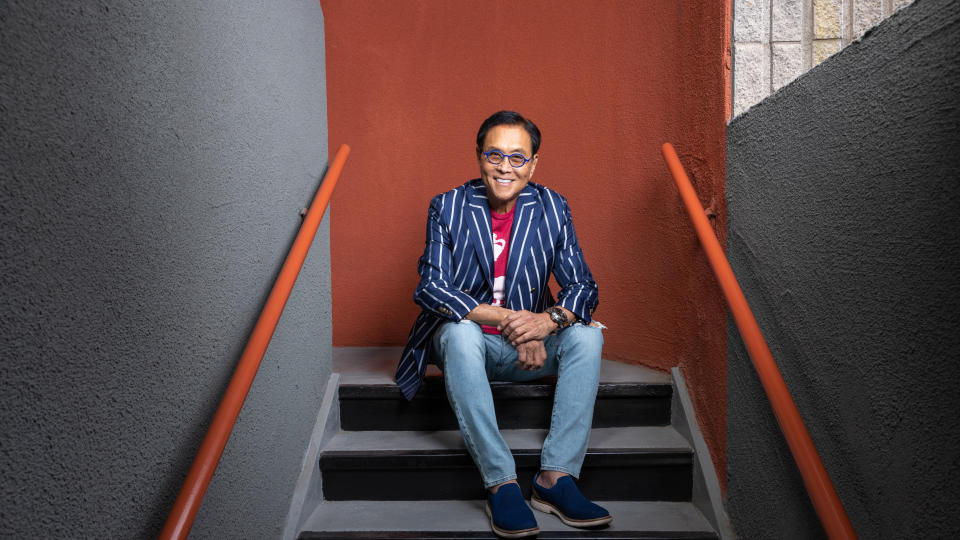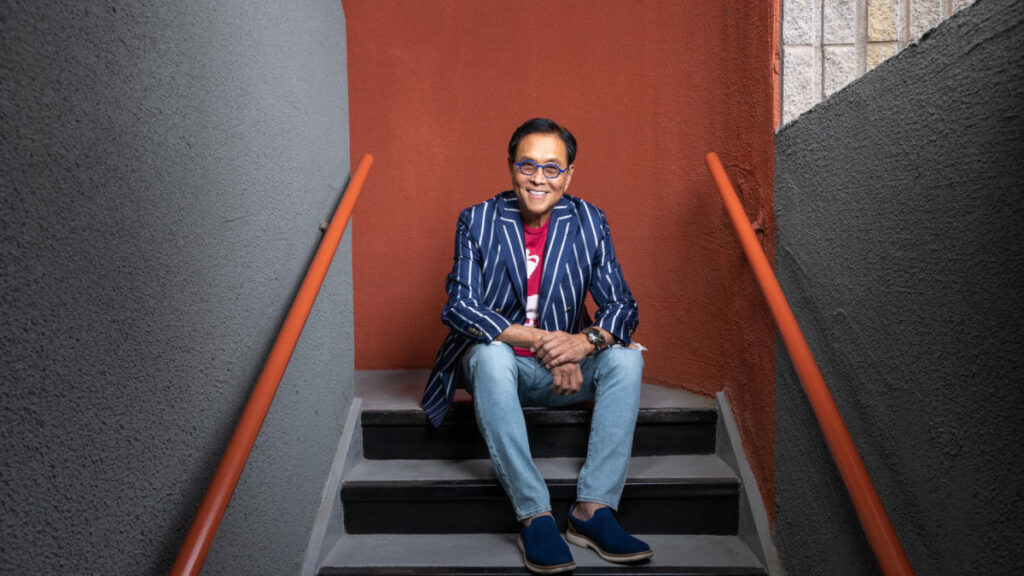
Robert Kiyosaki, author of the best-selling financial book Rich Dad Poor Dad, shares money secrets that sometimes go against mainstream views.
Read more: Rich Dad Robert Kiyosaki reveals why 401(k)s are a 'terrible' retirement plan
Try this: 5 Genius Things Rich People Do with Money
One of his most controversial views is that smart people don't save money, and he gives three reasons why:
sponsor: Do you owe more than $10,000 in taxes to the IRS? Schedule a free consultation to see if you qualify for a tax credit.
tax
First, Kiyosaki points out that governments use taxes to incentivize consumer behavior — for example, tobacco and alcohol are heavily taxed because governments want to discourage consumption.
He asks us to think about why governments don't encourage savings through their tax systems. There are many theories, but ultimately, if you want to pay less tax, saving is not the best option.
Instead, consider tax-advantaged retirement accounts like IRAs. These accounts offer tax benefits and can help you keep more of the money you save, but they may have withdrawal restrictions, such as age requirements, that limit your access to your funds.
inflation
Kiyosaki then talks about the hidden tax of inflation, which occurs when governments print more money.
When that happens, the amount of money you have becomes a smaller piece of the overall pie, and your purchasing power decreases. Think about how much more $100 could buy in the 1930s than it could buy today.
The average annual inflation rate in the United States is about 2% to 3%, but it can be significantly higher in certain years.
For example, in 2021 it was 7%, meaning the purchasing power of that same $100 has decreased by 7% over 12 months.
You can avoid this problem by earning an interest rate on your capital that is higher than the annual inflation rate – for example, if you earn 8% interest on your savings in 2021, you will be earning more than the inflation rate.
The problem is, even high-yield savings accounts may not beat inflation, which is why Kiyosaki says it's hard to get rich off savings.
Hot Topic: Robert Kiyosaki: 7 ways to get wealthy beyond your 9 to 5 job
Risk taking
Finally, Kiyosaki says that saving money often reduces the opportunity to take risks, which makes it harder to build wealth.
He said, “People who work hard and save money often think that investing is risky. And when you think something is risky, you avoid learning.”
The argument boils down to the idea that placing too much emphasis on saving actually makes it harder to achieve your financial goals — but Kiyosaki doesn't cite any statistics or research to back this up.
Why Kiyosaki recommends investing instead of saving
Kiyosaki doesn't like saving because he believes you should spend every penny you make. Instead, he recommends investing it, which he says has helped his money grow exponentially.
Investing can certainly help you build wealth faster — stocks, real estate, and other assets often outpace inflation and the interest rates on high-yield savings accounts — but it can also help you lose money faster this way.
A savings account won't grow your assets quickly, but it also carries little risk, so the question is whether you're willing to accept some risk in order to build your portfolio faster.
There's no inherently right or wrong answer — it all depends on factors like your preferences, your tolerance for losses, and your long-term financial goals.
Other Savings Philosophies
Kiyosaki's views on savings aren't exactly mainstream. Other financial experts are just as enthusiastic about saving as Kiyosaki is against it. Here are a few examples:
Dave Ramsey
Dave Ramsey is a big advocate of savings. His financial philosophy starts with setting aside $1,000 in an emergency fund. He also recommends keeping at least three to six months' worth of expenses in a savings account as you build your wealth over time.
Ramsey's philosophy is more about overall financial wellness than building wealth. He wants people to prepare for unexpected expenses in life, and he believes that's more important than growing your portfolio as quickly as possible. It's a safer approach than the one Kiyosaki recommends.
Ramit Sethi
Ramit Sethi is another popular financial expert with a show on Netflix and a New York Times bestselling book. Unlike Kiyosaki, Sethi believes you should allocate 20% of your income towards your savings goal.
Sethi says it's helpful to think about short-term, medium-term, and long-term savings goals. A short-term goal would be buying a new laptop, a medium-term goal would be saving up for a down payment on a new car, and a long-term goal is usually for a bigger purchase, like a first home.
This approach gives you the flexibility to find your ideal savings balance. You could put all 20% of your income into a retirement account or put it all towards saving for a home. This savings philosophy is entirely up to you.
Choosing the Ideal Savings Strategy
Even financial experts don't agree on the best way to save, so which method is best for you?
The answer depends on your preferences and goals. If you're worried about unexpected expenses devastating your finances, Ramsey suggests focusing on building an emergency fund.
Or maybe you're confident about unexpected expenses and want to start building your wealth now, then Kiyosaki's advice to invest instead of save your money might be the right solution.
It's also important to keep in mind that your ideal savings philosophy may change — for example, in your 20s your goal may be to start building assets, but as you get older and closer to retirement, it may change to preserving the assets you already have.
More from GOBankingRates
This article originally appeared on GOBankingRates.com: Rich Dad Robert Kiyosaki says smart people don't save money for three reasons

